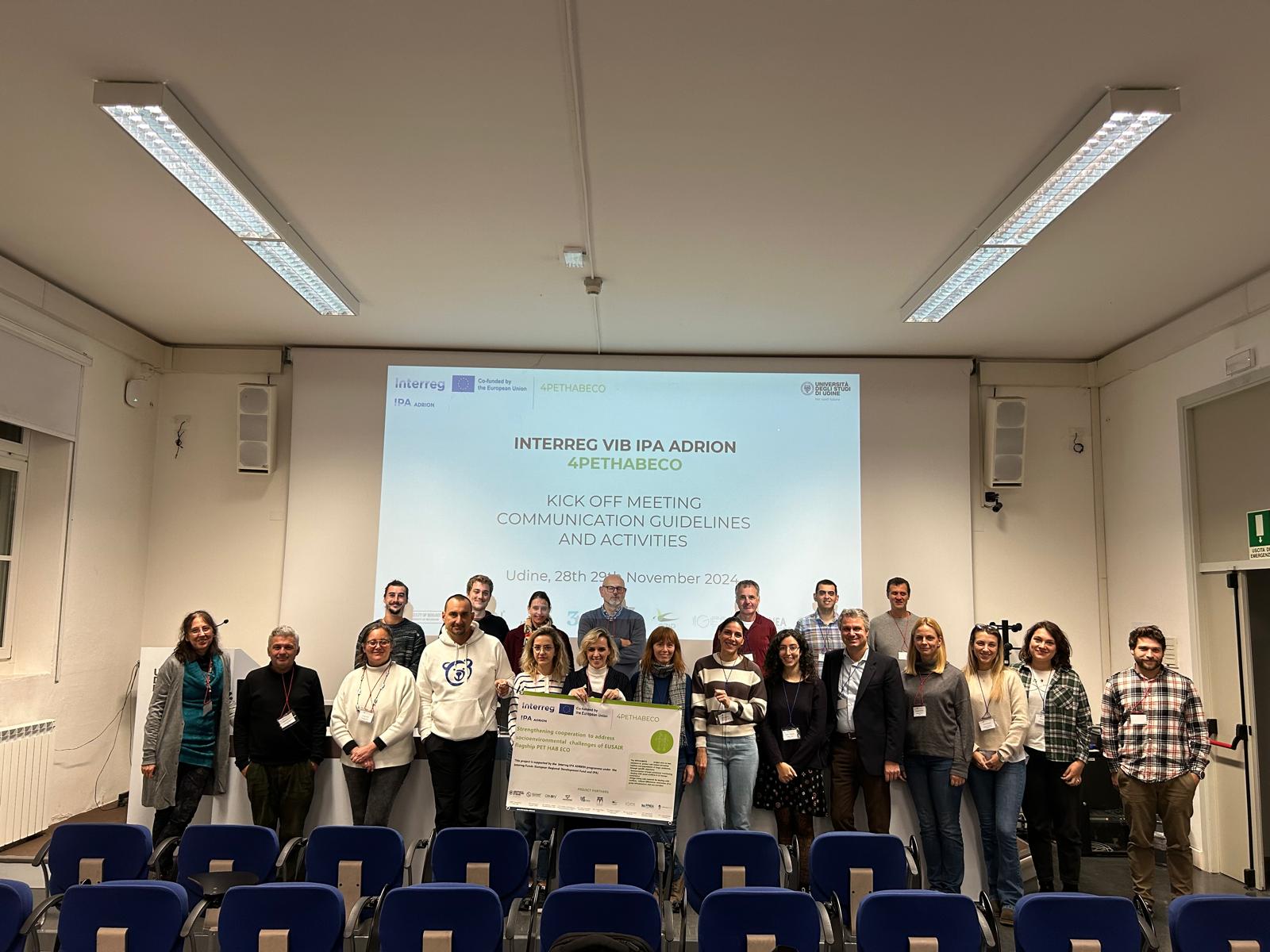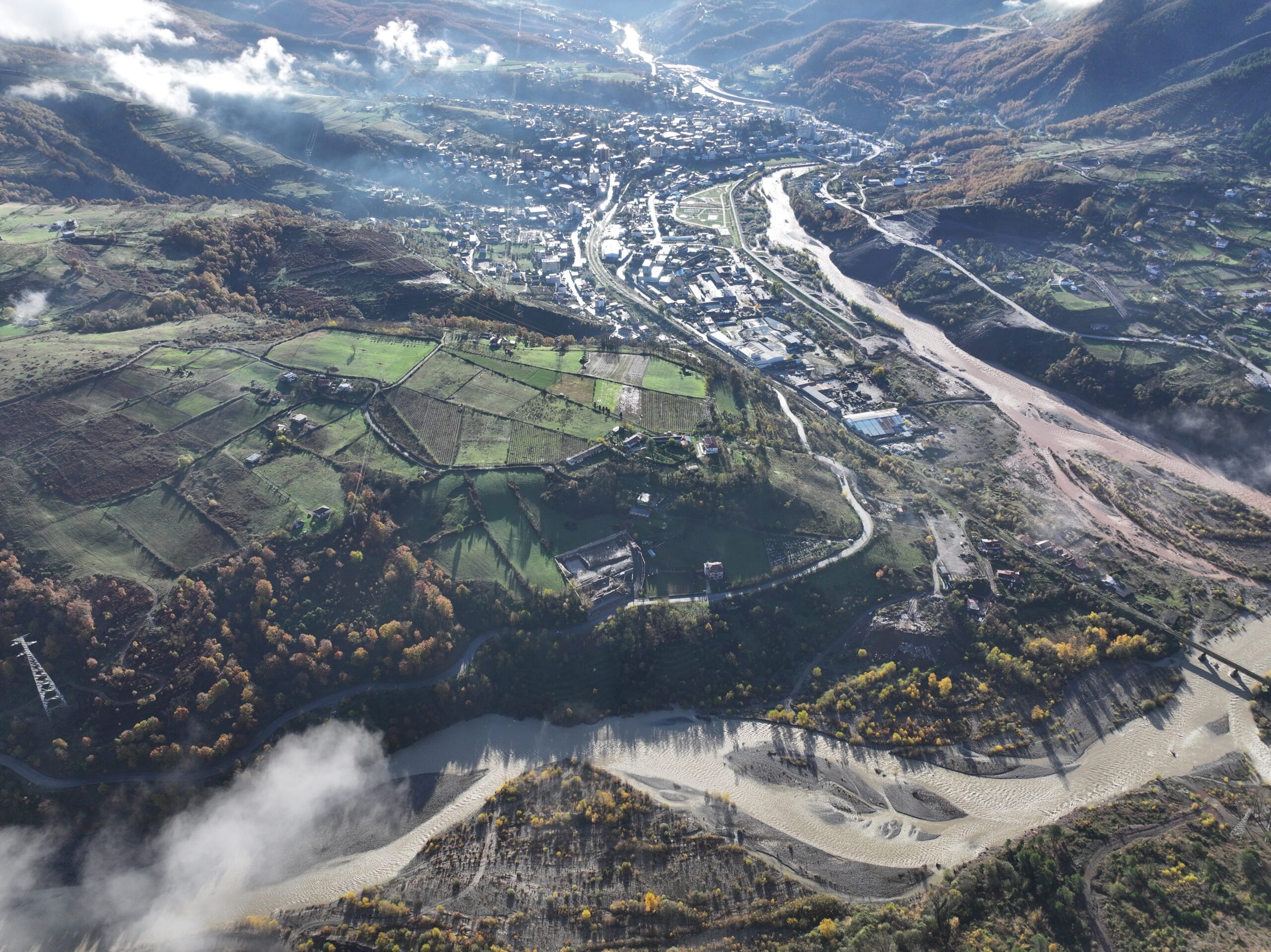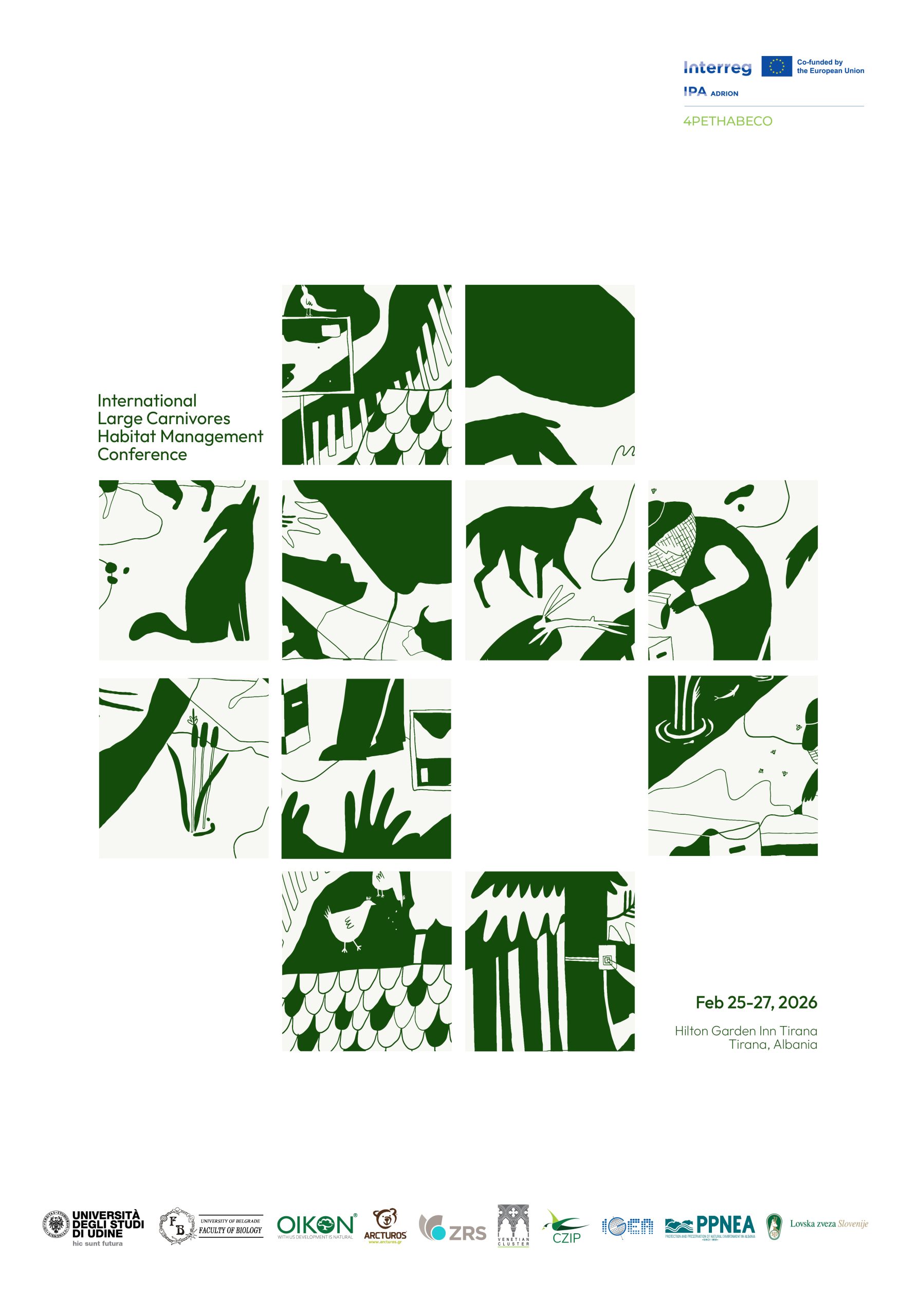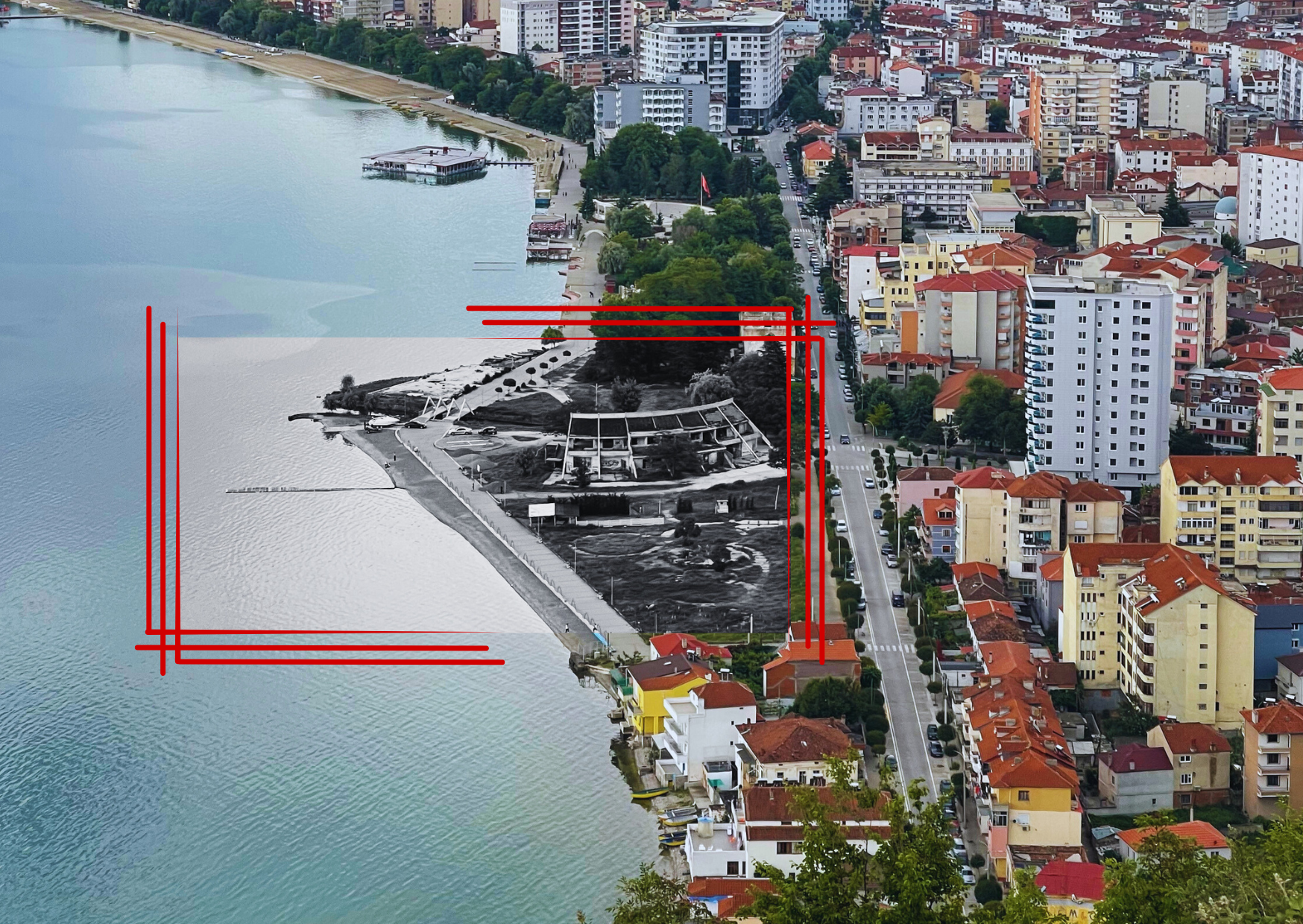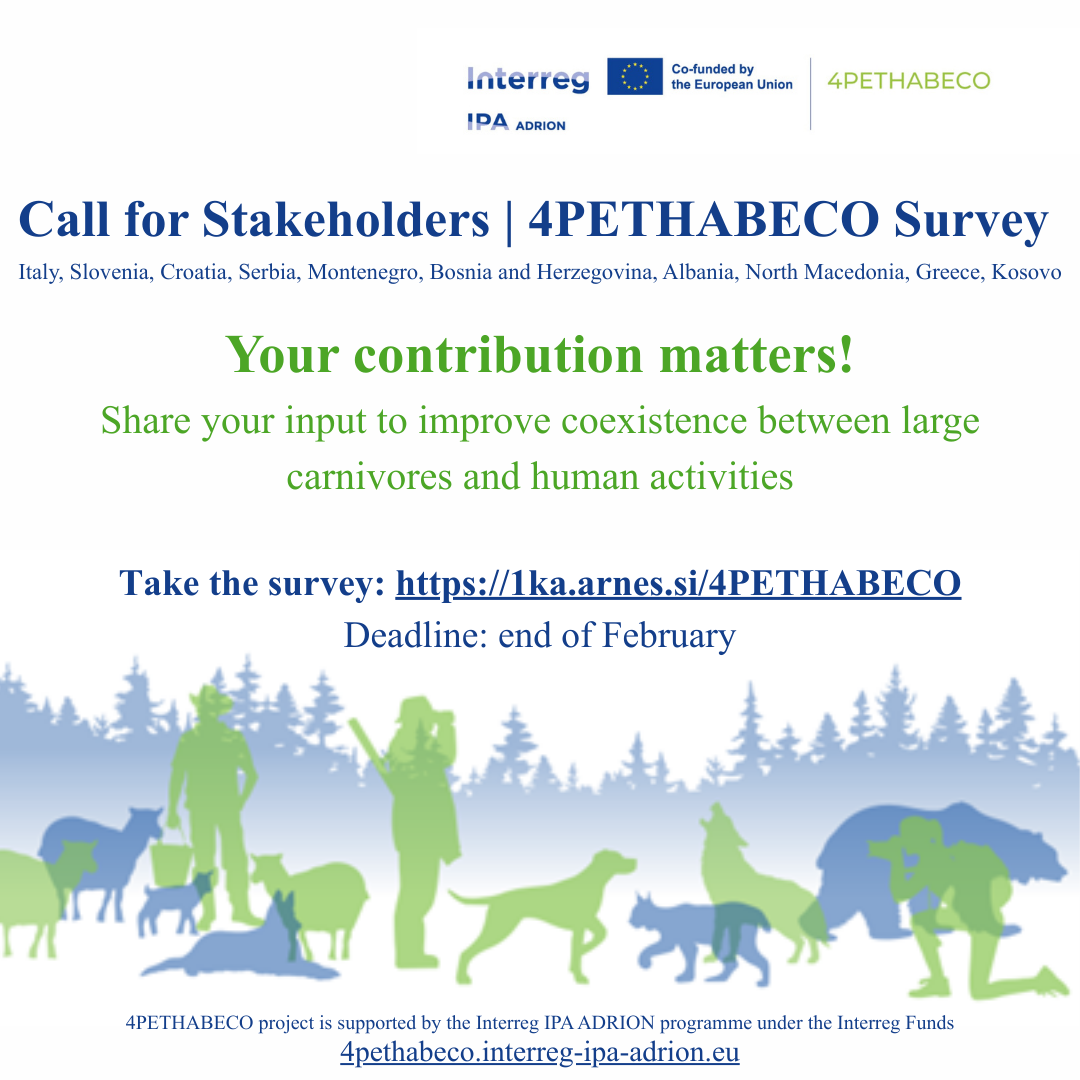The project involves eight countries from the Adriatic-Ionian region, from Italy to Greece, are involved in the project. The foreseen actions are focused on strengthening
transnational species monitoring, prevention and reducing damage, co creation of an active stakeholder community to foster participation and innovative coexistence initiatives.
Udine, 19 December 2024 – The aim of the European project, led by the University of Udine (Italy), is to improve the coexistence between humans and large carnivores (lynxes, wolves, bears, jackals) and to strengthen their protection, as a core element in preserving the biodiversity of ecosystems where these species play a key role. The partnership includes beside the lead partner also nine project partners from eight countries in the Adriatic-Ionian region: Italy, Albania, Croatia, Greece, North Macedonia, Montenegro, Serbia and Slovenia.
Activities will take place in several natural areas of Northeastern Alps, Dinaric Alps and Pindus, where large carnivores are present. Together, these areas are home to over 4000 wolves and bears and more than 200 lynxes.
To achieve the expected results, the project will focus on strengthening monitoring and joint data collection at the transnational level, enhancing strategies and measures to prevent and reduce the risk of damage caused by animals, actively
involving local communities and stakeholders (farmers, breeders, hunters), and co-creating innovative practices and initiatives for land management and fostering coexistence between humans and large carnivores.
Objective. The initiative was created to improve cooperation in the field of nature conservation, with particular focus on aspects of human coexistence between with large carnivores and wildlife in general. Furthermore, the project aims to enhance ecological connectivity,
strengthen the network of green infrastructures, such as green bridges or underpasses on motorway infrastructures, and ensure the safety of crossings on irrigation canals.
Benefits. The project offers an opportunity to apply innovative strategies in the nature management and conservation. It will enable the strengthening of large carnivore
monitoring systems and identify strategies to improve coexistence with humans. An additional advantage will be mitigating and preventing the risk of harm and damage resulting from negative interactions with domestic animals.
Activities. To implement the project three main activities will be carried out. Firstly, the collaboration will be strengthened to harmonize monitoring procedures and techniques for carnivore populations. In addition, it will increase transparency in the acquisition and interpretation of data, aimed at enhancing knowledge on the distribution and ecological role of large carnivores. This will also be achieved through a common digital platform and database that will promote the protection of large carnivores and the conservation of their habitats. Secondly, the adoption of more effective participatory processes will be promoted to support innovative management of large carnivores’ habitats. Encouraging the active search for solutions to the growing challenges associated with social conflicts in coexistence areas, as well as the cultural and environmental impacts on habitats, will be key. The third set of activities will focus on creating opportunities for local communities, such as the of “Living Labs” network. That is, living laboratories in which communities and stakeholders actively participate in research and management activities. These project activities will expand knowledge on large carnivores, co-create opportunities for the restoration of green infrastructure and ecological corridors, and lay the joint development of strategies for foundations for defining joint strategies for coexistence.
Project: The project titled Strengthening cooperation to address socio environmental challenges of the EUSAIR flagship initiative PET HAB ECO (acronym 4PETHABECO) is implemented within the framework of the Interreg IPA ADRION programme. The project aims to conserve large carnivore populations by testing innovative solutions for their protection and restoration of their habitats, by strengthening green infrastructure, reducing conflicts in coexistence and improving ecological connectivity. The long-term effects of the project will be ensured through the co-creation of joint strategies and action plans for the joint management of large carnivore populations in the Adriatic-Ionian region, the protection and enhancement of their terrestrial habitats and their connectivity. This will also enable the implementation of the strategic objectives of the EUSAIR, within the framework of the cross-border flagship initiative PET HAB ECO. The lead partner of the project is the University of Udine (Italy). The project partnership also involves nine other partner institutions, namely the Mediterranean Institute for Environmental Studies of the Science and Research Centre Koper, the Hunting Association of Slovenia, the University of Belgrade (Serbia), OIKON (Croatia), Arcturos (Greece), Venetian Cluster (Italy), CZIP – Centre for Bird Protection and Research (Montenegro), Igea MAK (North Macedonia) and PPNEA (Albania), as well as seven associated partners. The project begam in 2024 and will last three years.
For further information contact:
Dott. Stefano Filacorda, Di4A, Università di Udine/your reference contact
[email protected]


